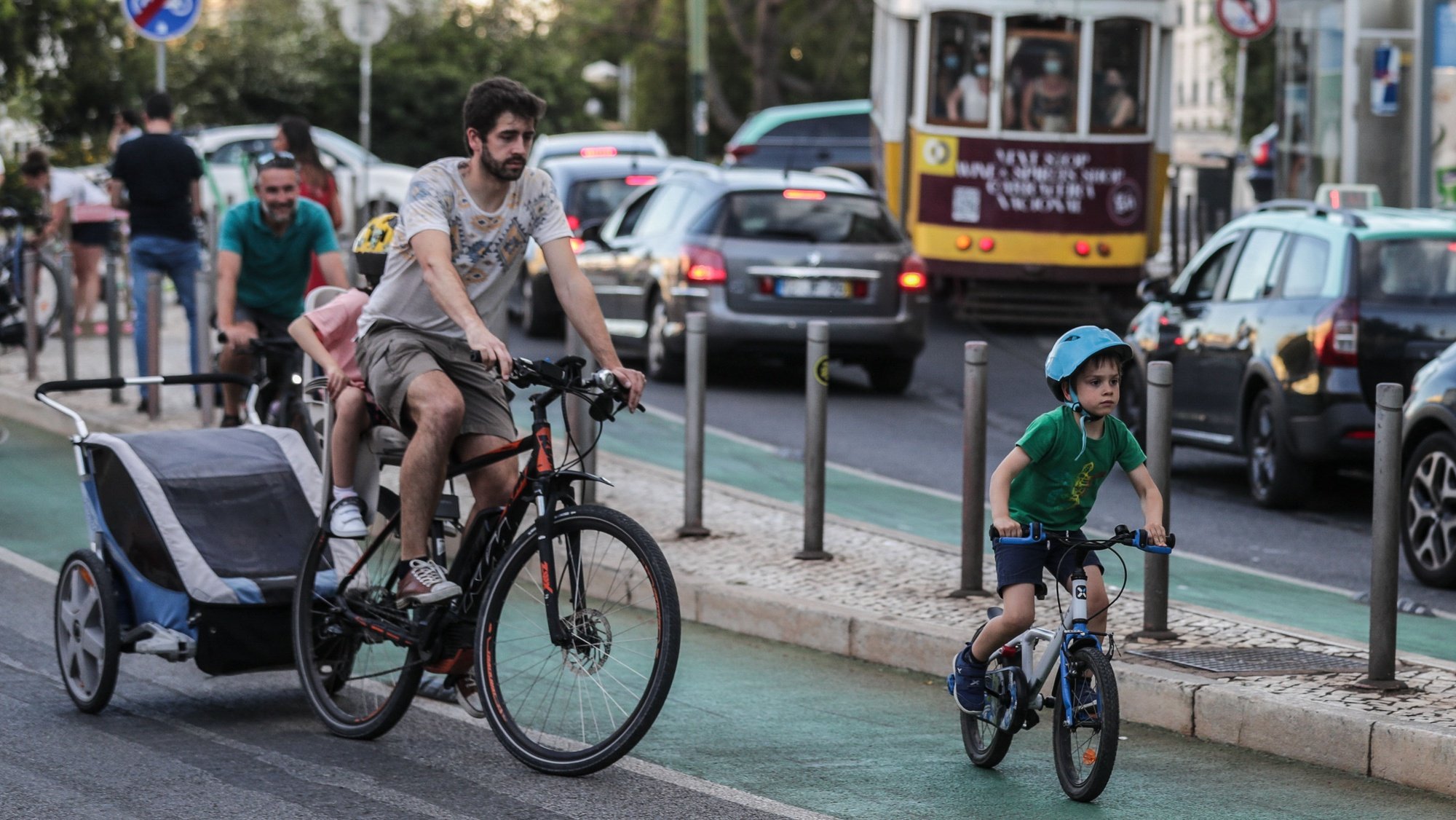The mobility specialist and former Lisbon City Council member Fernando Nunes da Silva rejects the idea of a dichotomy between soft media users and motorists, defending a complementarity between all forms of transport.
On the eve of the Cities that Walk congress (Thursday and Friday) and a few days before the European Mobility Week (September 16-22), the Lusa agency spoke with the former mayor of Lisbon about the evolution of the transport system in the capital .
Fernando Nunes da Silva, who was Lisbon Councilor for Mobility and Transport between 2009 and 2013 (for the Citizens for Lisbon movement, on the PS list), during the António Costa administration, harshly criticized the measures implemented in the following years, in particular in the administration of Fernando Medina.
They undid everything that had been done in the previous legislature. They stopped with 30 zones, with reduced emission zones and the restrictions got in the way. During these last eight years what was done was to destroy what had been done,” he said.
Asked what went wrong, the Civil Engineering professor at the Higher Technical Institute evoked the dichotomy that was built between users of more fluid/active means of transport, such as bicycles and scooters and cars, arguing that everyone should work in complementarity.
“Promoting active means of transportation and the use of public transportation is something that must be done in a gradual and integrated and non-tribalistic way, where on one side are the defenders of bicycles and on the other the others. That is not how things are done in a democracy or in a city with the complexity of Lisbon”, he said.
In this sense, he considered, the attempt to encourage the use of bicycles or scooters has given rise to situations of “indulgence with offenders.”
It is inadmissible for a scooter to be used by two people at speeds of 20 to 25 kilometers per hour on sidewalks. This is prohibited. This complacency has a lot to do with the ideological struggle. [Pensa-se que] what is needed is for the entire population to ride bicycles and scooters and, therefore, [cria-se a ideia de que] We will not put obstacles to that use, even if it is against existing legislation and regulation,” he criticized.
Nunes da Silva considers that the implemented mobility policies “turned out to have been a failure”, especially considering the indicators referring to the number of cars entering Lisbon and air quality.
“People who today have to move began to do so more by car than on foot, by bicycle or by public transport. The use of the bicycle is 0.2%. Previously we were able to respect the quality of the air on Avenida da Liberdade, but now we have exceeded the maximum limits again”, he argued.
The defined strategy, with a continuous network of cycle paths between Parque das Nações and Algés, was abandoned due to the “concern to maximize the kilometers of cycle paths”. As an example, he recalled the controversial case of the Almirante Reis Avenue bike lane to say that the final result of the work turned out to be different from what was initially planned.
The proposal we had was that we only had to make a bike lane in the ascending direction, which is when cyclists have greater difficulty and circulate slower and we must protect ourselves. Going down, it could have been done what all the great European capitals have been doing, such as Paris and London, that with the extension of one metro, one and a half meters of bus lane, there could be a coexistence between cyclists and public transport “, he explained.
Nunes da Silva also disagrees with the choice of a circular line for the state-run Lisbon Metro, and believes that the municipality should have had a stronger position. This type of line, he commented, was abandoned in Europe or limited to peripheral routes.
The extension of the Red Line, in turn, is described by the specialist as a “patrimonial attack”, since it foresees a passage through Jardim da Parada: “It is absolutely inconceivable how decades of study that existed in the Lisbon Metro and that He already came from the height of Dr. Jorge Sampaio [presidente da Câmara Municipal de Lisboa entre 1990 e 1995]to build a more expensive line and with the destruction of a garden that is essential and emblematic in the neighborhood of Campo de Ourique”.
Dependence on the car “begins with serious problems of urbanism”, says professor
The emeritus professor of the University of Lisbon José Manuel Viegas considers that the “excessive dependence on the individual car”, which affects Portuguese cities “without exception”, begins “with serious urban planning problems”, which also make public transport difficult.
We were unable to create the conditions for other types of mobility offers to be sufficiently attractive. This begins with serious urban planning problems,” the also president of the TIS transport consultancy told Lusa in a telephone interview.
According to José Manuel Viegas, who was speaking before the Cidades que Caminham congress, which takes place in Porto on Thursday and Friday, the problem goes back to the local finance law, in which there was, “for several years, by formula practiced, incentives to increase the urban perimeter”, with the consequent “density reduction”.
“By adding people, if I add them with a larger perimeter, the financial balance fund would give more money to the chambers that had that increase,” explained the former Transportation professor at the Higher Technical Institute (IST).
Source: Observadora
